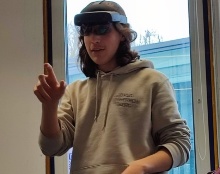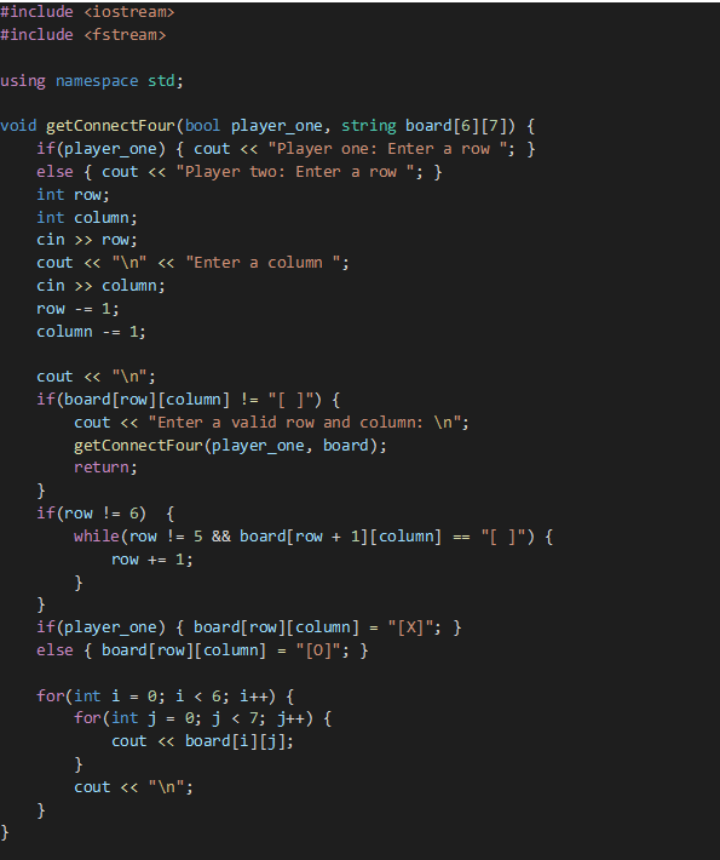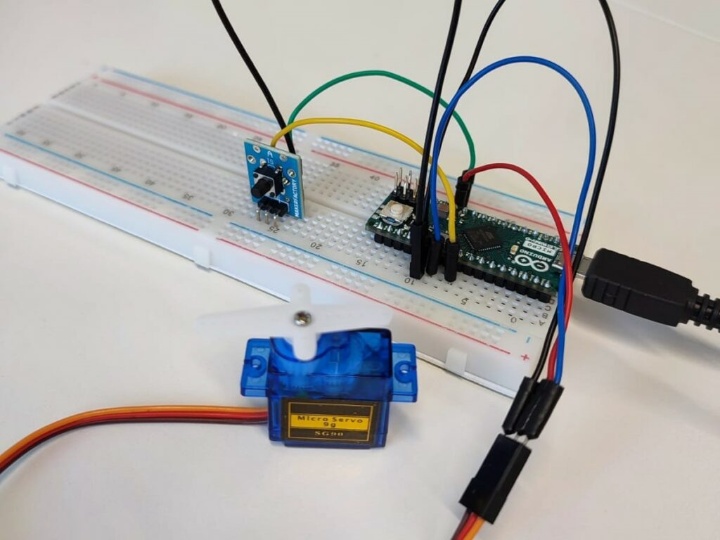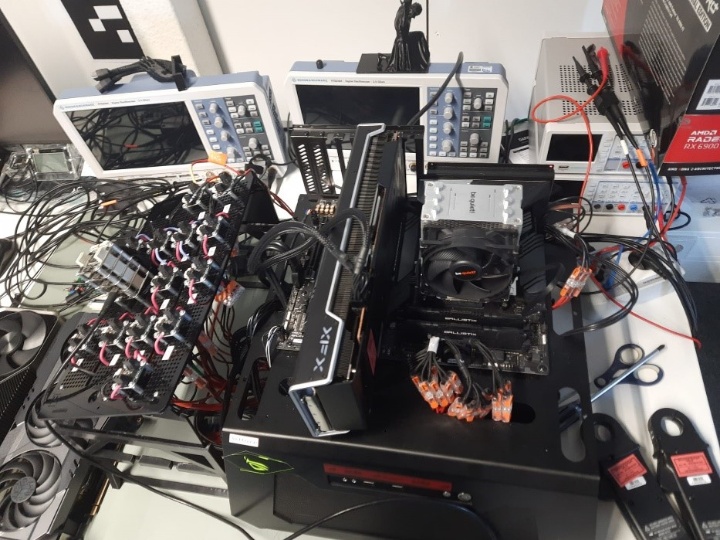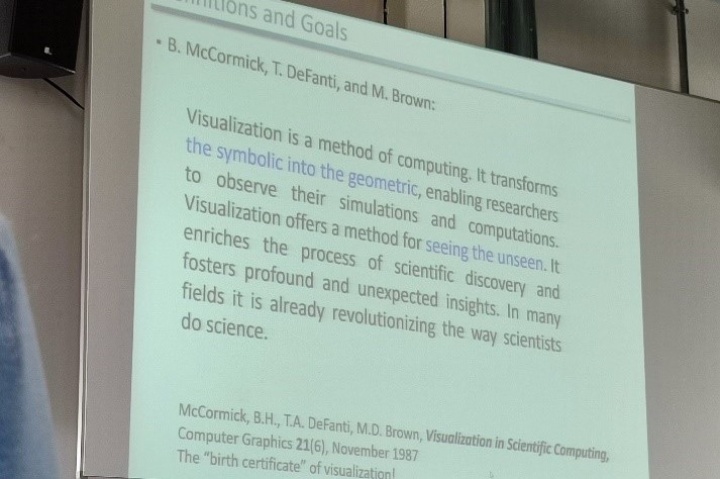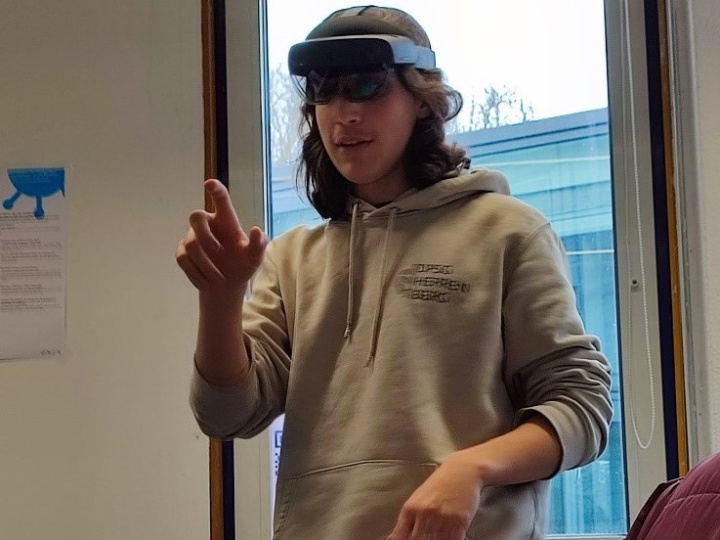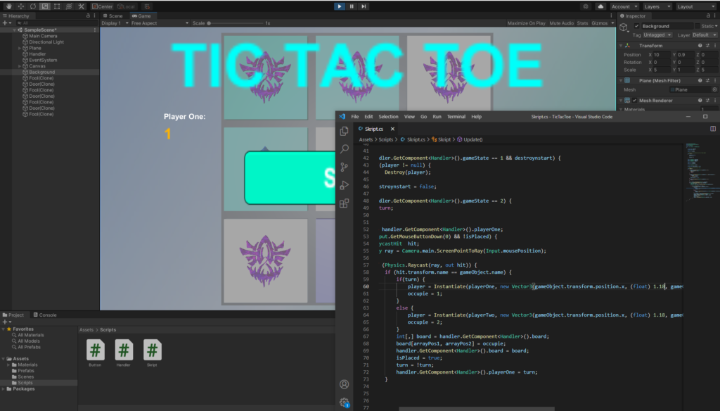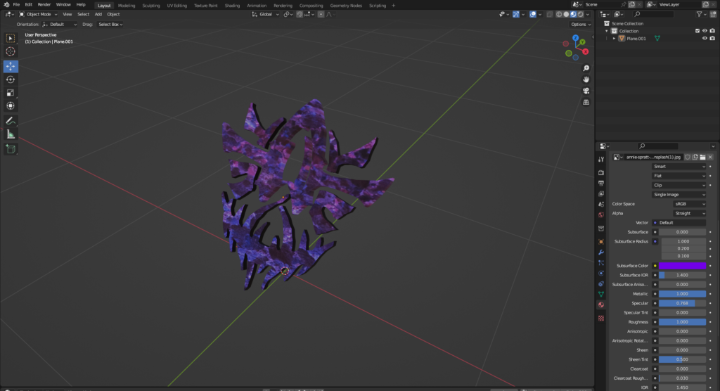From 13 to 17 February, 2023, Jonas Guschelbauer, Hannah Keis, Riya Vidwans and Jakob Wolf completed their BOGY internship at the Visualization Institute of the University of Stuttgart (VISUS). They got an insight into the world of programming, tried out different technologies and worked on their own projects. The internship was carried out as a cooperation between VISUS, the SFB-TRR 161 and the Cluster of Excellence IntCDC.
Below you can find their internship report.
Insight into the life of a computer scientist
From the 13th to the 17th of February 2023 we had the chance to do our BOGY internship at the Visualization Institute of the University of Stuttgart. We got a lot of insight into different areas of research and were introduced to different aspects of computer science. We also got an insight into life at the university.
C++
On the first day we were first introduced to a new programming language: C++. The syntax was a bit hard to understand at first, but once you started programming it got easier. In the end, each of us had programmed several small applications. Among them were a Connect Four game, a Battleship game and a calculator.
Arduino
On the second day, after a short tour of various research projects, we started with Arduino. Our supervisor, Matthias Braun, showed us the target hardware, a card reader, which then activated a servo to open a door. As a first introduction to the programming language, we tried to make an RGB lamp light up. Then we tried to make the servo turn. Once that worked reasonably well, the goal was to be able to control the servo in a variety of ways using a button. But we didn't get very far because the day was over and none of us really wanted to work on it for the next few days.
Technical Tour
Right at the beginning of the second day, we were given a guided tour of the VISUS building. Matthias showed us the Powerwall, the server rooms, the 3D printers and the HoloLens. Afterwards we were allowed to try out the latter with a demo. In the room with the HoloLens we also found the graphics cards, which were part of another research project. At the Powerwall, we were also allowed to look at the twenty computers that control the ten image displaying projectors. Unlike the previous BOGY group, we were not surprised to see that the computers in the server room are stored in refrigerators.
Lecture
As it was a lecture-free period, we were allowed to listen to the recording of a lecture on Tuesday. The topic of the lecture was “Visualisation” and we learned about its origin and history, definition and some examples of how it is used today. For example, it is used in the medical field or to accurately visualise particles. We were especially interested in the different flow visualisations, which were explained with some examples.
HoloLens
An exciting experience we had on Wednesday was to try out the Microsoft HoloLens. When you put them on, 3D holograms appear in the real world, which you can fix in space and then move around. By moving your hand, you can interact with the glasses. In our case, we were able to look at molecules on a huge scale, which was very fascinating.
Tic-Tac-Toe in Unity
From Wednesday on, we primarily worked with the Unity game engine. The task was to program a tic-tac-toe game. First, we had to build a game field in the 3D engine and then we had to make sure that the game could be played by code. At the end we also designed our own game pieces for our Tic-Tac-Toe game.
Blender
On Thursday we worked with Blender. Blender is a design software that we used to create 3D models - for example, to design our own room or to design game pieces.
We started with a quick introduction to the topic: how to scale, zoom in, zoom out, couple, etc. Then we got to make our own game pieces: Minecraft characters, book logos, or Polyomino bricks.
Conclusion
The BOGY internship was very informative and we had a lot of fun. We were able to learn a lot about the activities as a computer scientist and gain some experience. Therefore, we can only recommend an internship at the university. We would also like to thank our tutors from VISUS who accompanied us through our internship and were available for questions and assistance.
Jonas Guschelbauer, Hannah Keis, Riya Vidwans and Jakob Wolf
More information (in German) can be found here.


